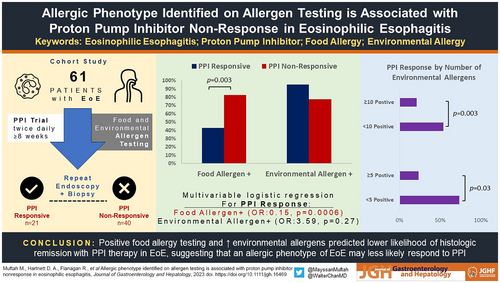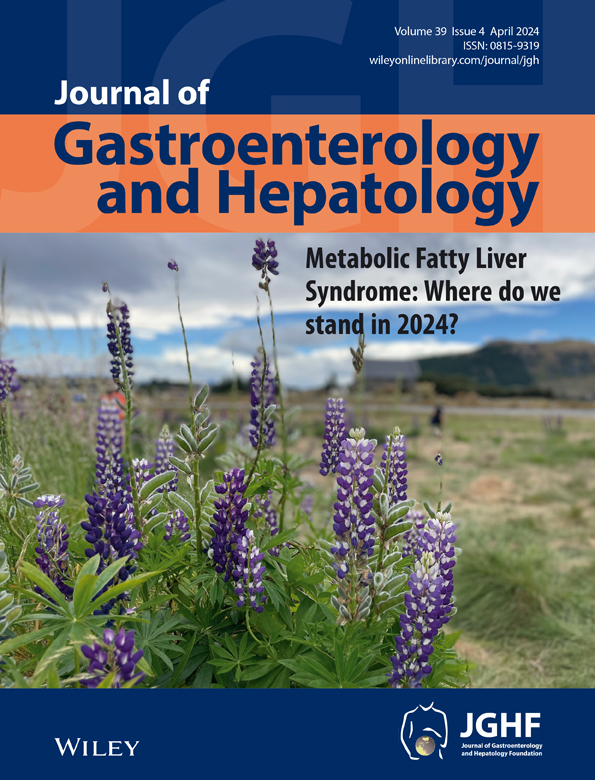Allergic phenotype identified on allergen testing is associated with proton pump inhibitor nonresponse in eosinophilic esophagitis
Abstract
Background and Aim
Food/environmental allergens have been associated with eosinophilic esophagitis (EoE); however, the correlation between allergy profiles and disease responsiveness to proton pump inhibitor (PPI) therapy remains unclear. We aimed to assess the association between food/environmental allergies identified on allergen testing and histologic response to PPI in patients with treatment-naive EoE.
Methods
Adults with newly diagnosed EoE who underwent formal testing for food/environmental allergies at a tertiary center were included. All patients underwent twice-daily PPI for 8 weeks with subsequent repeat endoscopy and biopsy to assess histologic response. Patients with <15 eosinophils/hpf on post-PPI mucosal biopsies were classified as responders (PPI-r-EoE), while those with ≥15 eosinophils/hpf were nonresponders (PPI-nr-EoE).
Results
Sixty-one patients met inclusion criteria (21 PPI-r-EoE vs 40 PPI-nr-EoE). Demographic, clinical, and endoscopic finding variables were similar between groups. Positive food allergen test was more prevalent among PPI-nr-EoE patients (82.5% vs 42.9%, P = 0.003). On multivariable analysis, positive food allergen testing remained an independent predictor for PPI nonresponse (aOR 0.15, CI: 0.04–0.58, P = 0.0006). Positive environmental allergen testing was highly prevalent, with no significant differences between groups (77.5% vs 95.2%, P = 0.14). However, higher number of positive environmental allergens (23.3% [≥5 allergens] vs 73.3% [<5 allergens], P = 0.003) and specific aeroallergens correlated with PPI-nr-EoE.
Conclusion
Positive food allergy testing and increased environmental allergens predicted lower likelihood of histologic response to PPI in EoE. Our findings support an allergic phenotype of EoE that may less likely respond to PPI therapy. Formal allergen testing may play a role in therapy selection and tailored management in EoE.





